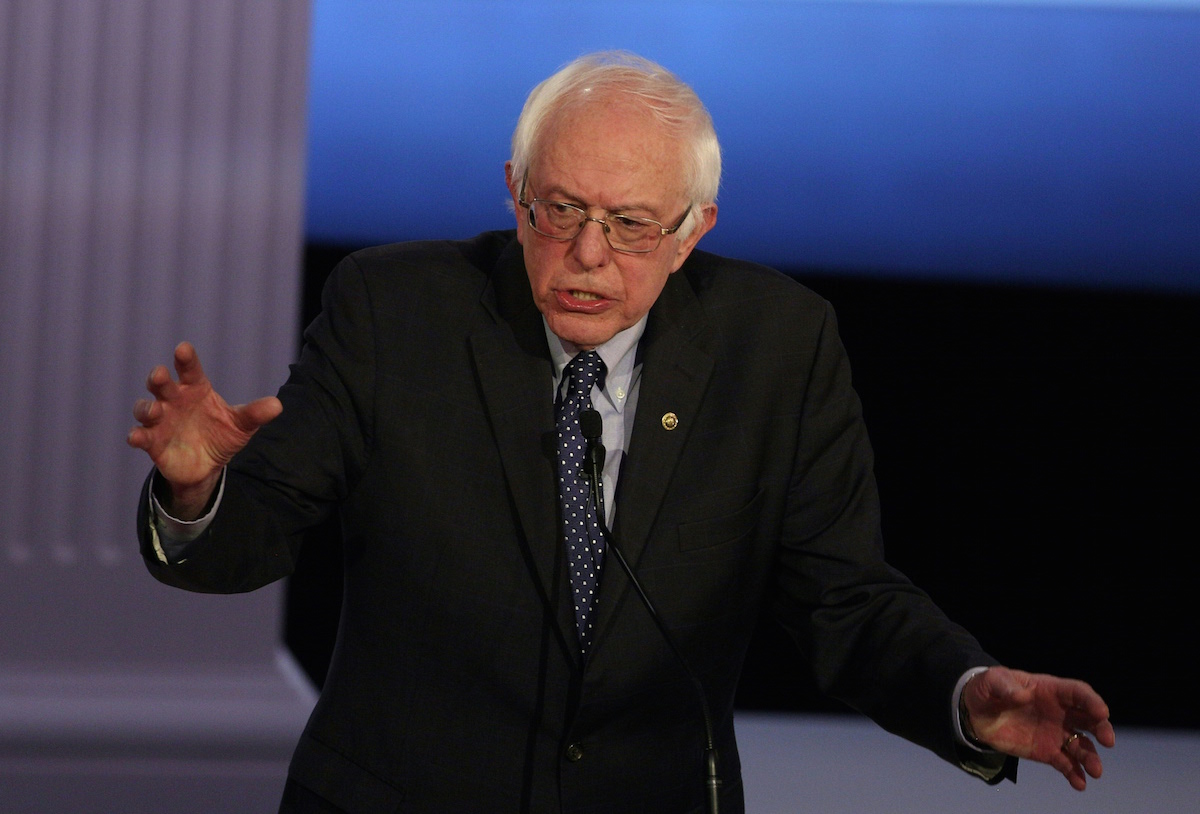
No matter the value of his point, the explanation that Bernie Sanders offered of the “domino theory” at the Democratic debate in Milwaukee on Thursday night wasn’t exactly enlightening: “Kissinger was one of those people during the Vietnam era who talked about the domino theory,” Sanders said. “Not everybody remembers that. You do. I do. The domino theory, you know, if Vietnam goes, China, da, da, da, da, da, da, da.”
As his yada yada channeling of impressionist Larry David suggests, there’s a lot of information covered by that “da da da.” Despite decades passing since the phrase “domino theory” was coined, the actual lessons of that idea remain hard to summarize.
The phrase is often traced to a 1954 news conference in which President Eisenhower was asked a question about the “strategic importance of Indochina to the free world.” This was just about a month before the end of the French colonial presence in Vietnam, and though the U.S. was not yet directly involved in the region, Cold War fears of what would happen if colonialism were replaced with communism was running high.
One of the reasons the world should pay attention to Vietnam was, Eisenhower said, “what you would call the ‘falling domino’ principle. You have a row of dominoes set up, you knock over the first one, and what will happen to the last one is the certainty that it will go over very quickly. So you could have a beginning of a disintegration that would have the most profound influences.” The possible sequence of events he foresaw if Vietnam fell was the loss of Burma, Thailand, Malaysia and Indonesia—and “millions and millions and millions of people” who would end up living under communism.
“So,” he concluded, “the possible consequences of the loss are just incalculable to the free world.”
As TIME explained in April of 1964, not too long before the Gulf of Tonkin incident led to increased U.S. involvement in Vietnam and a year before this magazine declared that the war in Vietnam was “the Right War,” the domino theory had by then become the accepted justification for war. “In Washington, Secretary McNamara repeated once again that the U.S. will not pull out of South Viet Nam and left open the possibility of direct action against North Viet Nam if it becomes necessary,” the article noted. “Just what that action might be was no clearer than before. But it has been clear for a long time what would happen if South Viet Nam gave way to Communism: the reaction described by the famous ‘domino theory’ would undoubtedly set in.”
But by the time the 1960s neared their end, the domino theory had been discounted by many experts.
The reasons for that shift were several. For one thing, as the U.S. mood shifted to more vehement opposition to involvement in Vietnam, there was no longer such a rush to find a reason to be there. Plus, communism was already proving not to be quite as forceful an enemy as once thought. Though it was clear that U.S. withdrawal from the region would not be without consequences, officials guessed that nations like Thailand and Malaysia would probably retain their independence—and in fact, such a move might comfort China and North Vietnam enough that their support to guerrilla forces would calm. History has largely borne out that perspective: the victory of communism in Vietnam, while traumatic for the region, did not create a fresh wave of communism throughout Asia.
Still, not everyone thought the old theory had been disproved.
For example: Henry Kissinger. “I know it is fashionable to sneer at the words domino theory,” he told a news conference in 1975, as the U.S. involvement in Vietnam drew to a close. Even so, he said, if the U.S. abandoned Cambodia in leaving South Asia, that decision would have disastrous consequences for the nation’s citizens as well as the image of American credibility. (On the former point at least, he was right.) In fact, even after the war’s end, many of those most closely involved in decision-making—including Presidents, military leaders and ambassadors—continued to espouse the theory.
Unsurprisingly, those who thought the war had been a mistake—a perspective that only continued to gain traction in the years since its end—tended to believe that the domino theory was also a mistake, the viewpoint with which Sanders clearly sides. But others believed that, even if victory in Vietnam had proved elusive, the theory itself still held. For example, the theory was sometimes applied later during the Cold War to European movement away from Communism; as one Eastern European nation after another liberalized, history seemed to prove to some that instability next door did make a difference to a nation’s politics. As one TIME reader put it when the Berlin Wall fell, “Who says the domino theory is baloney?”
It is, as Sanders put it during the debate, “just a very different, you know, historical perspective.”
More Must-Reads from TIME
- Inside Elon Musk’s War on Washington
- Meet the 2025 Women of the Year
- The Harsh Truth About Disability Inclusion
- Why Do More Young Adults Have Cancer?
- Colman Domingo Leads With Radical Love
- How to Get Better at Doing Things Alone
- Cecily Strong on Goober the Clown
- Column: The Rise of America’s Broligarchy
Write to Lily Rothman at lily.rothman@time.com